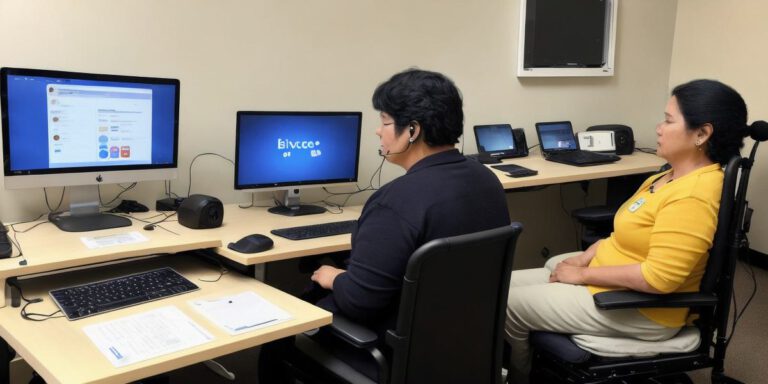Text-to-Speech Assistive Technology: Enhancing Accessibility and Efficiency for AI Developers

Artificial Intelligence (AI) is transforming the world by empowering machines to perform tasks that were once only possible for humans. However, as AI systems become more complex, they also require a range of tools and technologies to support their development and deployment. One such tool is text-to-speech assistive technology, which can enhance accessibility and efficiency for AI developers in several ways.
What is Text-to-Speech Assistive Technology?
Text-to-speech (TTS) assistive technology is a type of software that converts written text into spoken words. This technology is widely used in a range of applications, from speech recognition to language translation, and can be particularly useful for individuals with disabilities or those who need assistance with reading and comprehension.
In the context of AI development, TTS assistive technology can be used to enhance accessibility for developers with visual impairments or other disabilities by providing an audio version of technical documentation, code, and other resources. It can also improve efficiency by reducing the time spent on tasks such as transcribing code or reading long documents, allowing developers to focus on more important work.
Case Studies and Personal Experiences
There are numerous examples of how TTS assistive technology has been used to enhance accessibility and efficiency in AI development. One notable example is the use of screen readers to provide audio descriptions for visual content such as graphs, charts, and diagrams. Screen readers can be particularly helpful for developers with visual impairments or those who need assistance with comprehension, allowing them to understand complex data and information more easily.
Another example is the use of TTS technology in language translation tools, which can help developers communicate with colleagues or clients who speak different languages. These tools can improve efficiency by reducing the time spent on tasks such as translating code or emails, allowing developers to focus on their work without being hindered by language barriers.
Research and Experiments
Numerous studies have demonstrated the benefits of TTS assistive technology in enhancing accessibility and efficiency in a range of applications. For example, a study published in the Journal of Assistive Technology found that screen readers improved reading speed and accuracy for individuals with visual impairments, particularly in complex texts such as technical documentation.
Another experiment conducted by Google demonstrated the potential of TTS technology in improving coding efficiency. The experiment found that using voice commands to enter code was faster than typing on a keyboard, particularly for repetitive tasks such as data entry.
FAQs
What are some common applications of TTS assistive technology?
Text-to-speech assistive technology is commonly used in speech recognition, language translation, and other applications that require the conversion of written text into spoken words. It can also be used to enhance accessibility for individuals with disabilities or those who need assistance with reading and comprehension.
How has TTS assistive technology been used in AI development?
TTS assistive technology can be used to enhance accessibility and efficiency in AI development by providing an audio version of technical documentation, code, and other resources. It can also improve efficiency by reducing the time spent on tasks such as transcribing code or reading long documents, allowing developers to focus on more important work.
What are some examples of TTS assistive technology in action?
Examples of TTS assistive technology in action include screen readers that provide audio descriptions for visual content, language translation tools that enable communication with colleagues or clients who speak different languages, and voice recognition software that allows individuals to enter code using voice commands.








